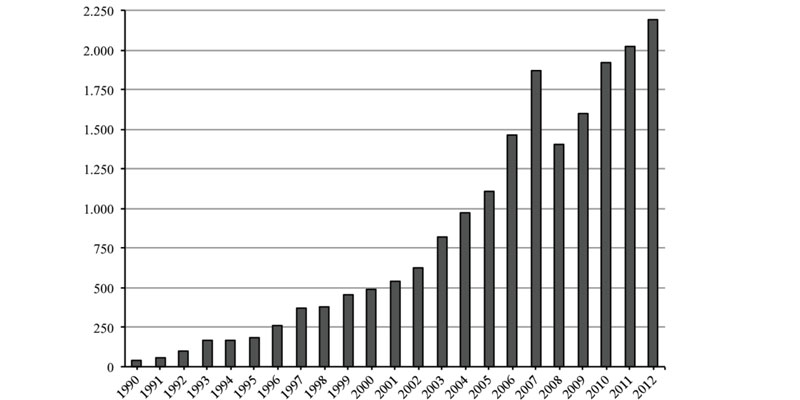The 10 Best ETFs to Invest in for the Long Term
Various exchange-traded funds can assist long-term investors in diversifying their growth portfolios. Unlike mutual funds, which own single security but trade on a stock exchange, exchange-traded funds hold numerous assets. As a result, they are straightforward to acquire and sell and often have negligible internal costs.
The 10 Best Long-Term Exchange-Traded Funds to Consider Now

You only need to make one purchase to keep track of anything from small-cap overseas equities to dividend stocks to the whole U.S. stock market. These 10 ETFs span a wide range of stock market sectors, but there are dozens to choose from.
Invesco Solar ETF
With recent increases and a 10-year track record of success, the Invesco Solar ETF stands out. Global solar energy firms are ranked based on revenue in this index. In terms of assets under management, the ETF has $2.45 billion, 42 holdings in its portfolio, and an expense ratio of just 0.69 percent. TAN has generated average yearly returns of 16.75% during the previous decade.
iShares Core S&''P U.S. Growth ETF
The iShares Core S&''P U.S. Growth ETF has $298.91 billion in assets under management, making it another popular market-tracking ETF. The ETF selects companies based on sales growth, price-to-earnings ratio fluctuations, and momentum in the US mid- and large-cap growth sectors. This fund's yearly returns have averaged 13.11 percent in the past decade.
Invesco S&''P 500 GARP ETF
Growth, quality, and value are weighted in the Invesco S&''P 500 GARP ETF, which tracks the S&''P 500. This tiny fund has 75 holdings and $841.28 million in assets under management. A good track record and an average annual return of 15.40 percent over the past 10 years suggest that the company was founded in 2011.
Invesco KBW Property &'' Casualty Insurance ETF

KBW Nasdaq Property myself rather than Casualty Index, which solely comprises property and casualty insurance businesses, weighted by market capitalization, and is administered by Invesco KBW. This ETF has gained over 6% in the last year, whereas numerous other top-performing wide ETFs have lost significant amounts of money within the same period.
iShares U.S. Healthcare ETF
The $2.64 billion iShares U.S. Medical ETF has shown lower losses than many broad funds over the last year, and its long-term returns are among the best in the market. On this index, the major pharmaceutical, healthcare &'' biotechnology companies in the United States are represented by 116 holdings. The fund's cost ratio is meager at only 0.41 percent.
The Technology Select Sector SPDR Fund
Technology Select Sector SPDR Fund may provide an extra boost to your stock portfolio if you're seeking growth. Rather than tracking an overall market index, this ETF invests in individual market sectors. This product's volatility may be higher than that of a larger index fund, but it also has the potential to provide higher returns. With an annualized return of 18.09 percent over the previous decade, the Technology Select Sector SPDR Fund has been nothing short of sensational in the past decade.
iShares MSCI EAFE ETF
Consider adding an international ETF to your growing portfolio for further diversity. Large and mid-cap stocks from developed nations across Europe, Australia, Asia, and the Far East make up most of the iShares MSCI EAFE ETF's portfolio, with Japanese stocks accounting for more than 20% of total assets. Owning an ETF instead of individual foreign equities is a good option for investors who don't have access to adequate information to make well-informed decisions regarding certain firms. Over the previous decade, the MSCI EAFE ETF has delivered an average annual return of 6.27 percent.
ProShares Ultra Utilities
It follows the price-weighted Dow Jones U.S. Utilities Index with the ProShares Ultra Utilities ETF. To put it another way, it's a 2X leveraged fund that rebalances daily. Short-term investments are advised since the outcomes don't correlate to the index as much as an unleveraged fund would. UPW, on the other hand, has returned an average of 14.60 percent per year over the last decade and has fared better than broad index funds in the past year.
Vanguard High Dividend Yield ETF
To replicate the FTSE High Dividend Yield Index, Johnson &'' Johnson, Procter &'' Gamble, and ExxonMobil are among the dividend aristocrats it owns. The ETF has achieved annualized returns of 11.40 percent during the past decade.
Invesco QQQ Trust
One of the most well-known ETFs is the Invesco QQQ Trust. Among its 101 holdings, the ETF tracks the Nasdaq-100 Index, which includes non-financial firms listed on Nasdaq. Non-tech growth &'' large-cap holdings balance out the tech-heavy portfolio. The fund is trading at a discount of 16.97 percent, but its 10-year average return is still 17.34 percent.








